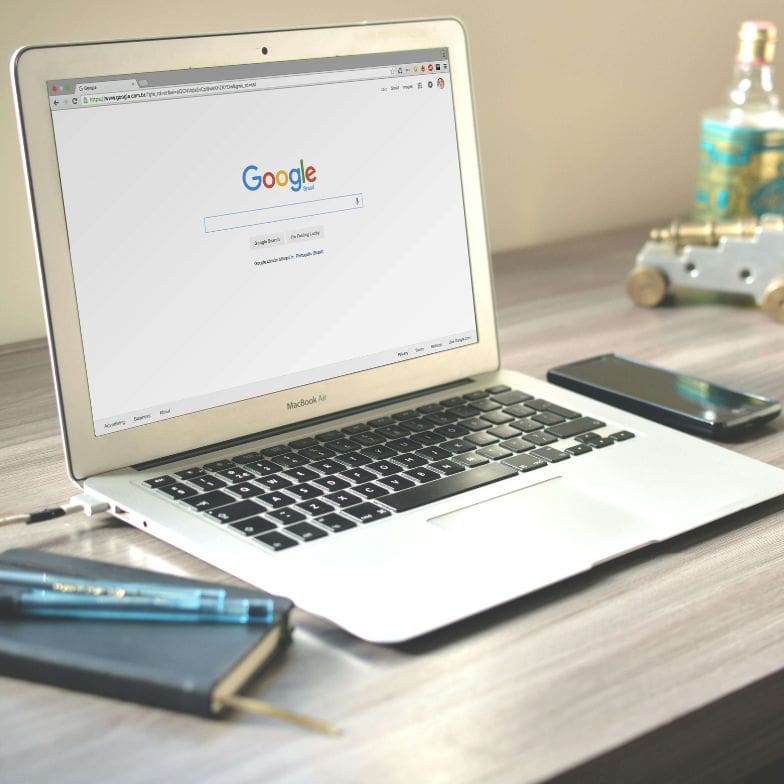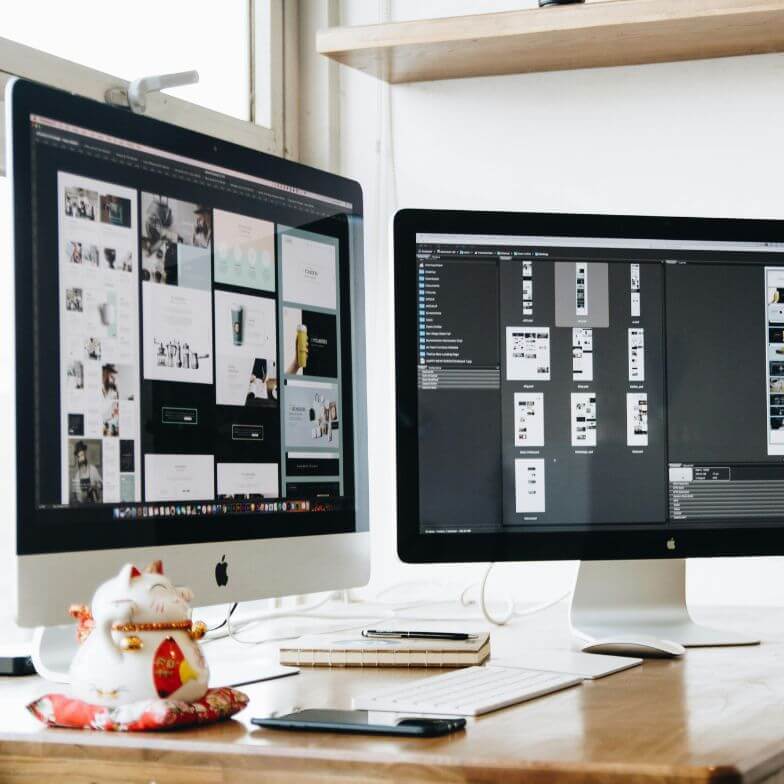When starting a business, you will eventually come to the question of whether or not to build your own website, get your neighbor’s cousin to do it, or hire a professional web designer. It’s just one of those crucial steps, sort of like picking a business name or logo. It is one that you certainly want to get right the first time around, as rebrands can be expensive and time-consuming in the future. I want to help answer that question. Of course, right now you’re putting your skeptical hat on and asking “but aren’t you going to tell us we need you?” The answer is simply no. Weber Design was founded with the core concept of Increasing ROI, and selling things business owners don’t need goes against that principle. In fact, we regularly turn away work because it is something that we know will not bring in that return on investment. We decided to put this together to help business owners make the most informed decision as possible, weighing the pros and cons of non-professional vs. professional web design.
DIY vs. Professional Web Design
Costs of Building a Website
Let’s get right to the part that’s typically the most obvious. The costs of building a website dramatically vary when you are talking about DIY and hiring a digital agency.
Average Website Costs:
Let’s be honest here. I will be the first person to tell you, if you are selling cookies for $5 a piece one hour a week then a custom website is not for you. The average person can go onto sites like Squarespace and Wix and make their site to the tune of $16/mo. That’s only $192 a year or $576 over the course of three years. This is incredibly cheap if you compare it to the average cost of a small business site, which can be anywhere from $4000 to $10K+. Of course, this is only one piece of the picture, but if funds are limited, as the often are in small businesses, the cheaper option might be the way to go. There is a flip side to this coin though. Let’s say you get a speeding ticket, $250 fine. Probably cheaper to represent yourself at court than hire a lawyer, so why don’t you? The stakes are small and no need to use up cash flow. Now you’re charged with Manslaughter? Probably worth ponying up the $300 an hour at around $20K even if it kills cash flow. Now, that is a bit of an extreme example, but it introduces the next step in deciding whether or not to build your site, ROI calculation.
Calculating your ROI:
The first phase of evaluating any marketing strategy is to figure out what a lead and ultimately a sale is worth to you. Though I typically find that this is not a simple question. You have to look at your business model carefully. Let’s use a small town coffee shop. The average profit on a 16 oz. Mocha is $2.30. So if your website brings you ten new clients a month for six months, the site has made you $230. Not much of a return right? Well don’t forget that many of these will likely be return customers, let’s say 80%. Now in 6 months, you have 168 new customers with a value of $386 a month ($4632 annually). This is just if they visit once a month, imagine your daily coffee buyers? Obviously, there are a ton of variables involved, but this is just a rough idea. The idea is to make sure you account for attrition rates, repeat business, referrals, advertising costs, etc. It is a big undertaking, one you should carefully calculate. Marketing only works if it brings a return, so be careful not to overestimate your ROI.
The Verdict on Web Design Costs:
Carefully calculate your ROI for marketing. If your marketing efforts will likely only net a couple hundred a year, you should opt for DIY website builders. If you are in a high-profit margin business, you should take a look at what a lead is worth to you and calculate your risk vs. reward. A good marketing agency will recognize errors in your calculation and help you make the most informed decision possible after all, there name counts on it.
Effectiveness of your Web Design
Search Engine Optimization:
Perhaps the biggest problem with drag-and-drop website builders and other DIY web builders is that SEO is hard. Yes…I said it. In fact, at night, rocket scientists check under their beds for SEO. It’s that bad. If you have high competition in the area, you may want to consider this when DIYing your website. A large problem a business owner will face with Drag & Drop builders is the inherent limitations. With code anything is possible, but web builders don’t have this flexibility. We have had to build new sites for owners on numerous occasions because they had taken their DIY site as far as it could go without a professional custom web design. You can have the prettiest website in the world but if you are missing out on the 5.5 Billion Google Web Searches a day it is like having a Ferrari that never leaves the garage. Yeah you know it’s great, but nobody else can see it.
Modern Styling & Responsive:
Whatever you do make sure that you have a website that looks stunning, is pixel perfect, and is responsive. Mobile friendly web design in today’s market is vital. Not only does it make your users happy, responsive web design affects search engine rankings. Another common problem I see consistently with DIY sites is a lack of quality. You can make some nice, clean, and organized websites on your own. Make sure you take the time to come up with a plan, learn about your user, and create a great experience. Having an optimized sales funnel on your site will likely be the difference between getting the sale or not. Make sure you make it count.
Evaluate Your Competition:
It is of course always an excellent idea to evaluate your competitions marketing, web design, and performance. Especially so if you’re a newcomer in the business, you want to make sure you stand out to prospective clients and customers by ensuring you have the best web presence, and show up first when they are searching for your industry type. If your competition has no web presence, you can probably get away with a DIY site but always keep in mind, growth and new competition can change this dynamic (we’ll get to this next).
The Verdict on Marketing Effectiveness:
DIY doesn’t have to mean bad quality. You want to make sure that you put your best foot forward when you are building your site, whether with a digital agency or on your own. Remember that your website is the 24/7 online, the most visible face of your business. You want to show off your professionalism and quality, so make sure you take the time to create something beautiful, functional, and that one-ups (or two) the competition.
Custom Design, Data, & Flexibility
User Interface/User Experience:
A common problem with building a DIY site is that you need to be able to organize information into a pleasant and easy to use interface. This can be very difficult for some people and can make or break a site. If you plan to utilize sales funnels (if not you should look into it), then this is even more so important that you remove as much friction in these funnels as possible. An excellent example of this was Amazons 1-click-order option, this was created to reduce the number of steps it takes a user to complete a purchase, and thus removing friction from the sales funnel. Even seemingly simple modifications like this, of course, can be difficult to accomplish without custom development, as well as the experience to make decisions regarding the user experience. Do your research on your user base and make sure you make a UX/UI that fits their wants and needs. Just make sure it doesn’t look like a 90s website, please, for the love of humanity.
Data analysis:
Another point to consider is if your data collected on your site is important to you or valuable. If so are you willing to learn how to interpret it and take action? Data driven decisions are how successful companies evolve. Reading the data from your site can simply tell you that blue buttons result in 3% more sales than red, or can be as significant as finding an effective landing page that converts 70% of visitors. Data is immensely powerful, in fact, how do you think Google and Facebook have become such massive behemoths? Data collection is a multi-billion dollar industry, keep this in mind when choosing on whether or not to go with a professional web developer or do-it-yourself.
Custom Functionality:
Kind of like the one-click-ordering we talked about above, you may want to keep in mind any special features you want (or may want in the future). Even simple tasks can at times be ridiculously hard or impossible with DIY site builders. If your needs are simple, then DIY may be the way to go. For example, an online store selling three items, DIY is likely more cost effective. Contrast being that if you are wanting to sell many items or have custom functionality like adding names or logos to t-shirts, then a custom e-commerce solution is likely best for you. Which reminds me…
Flexibility:
Flexibility for growth is perhaps the single most overlooked piece of the puzzle. Anyone who has ever taken a 3-year-old shoe shopping knows that you always buy something they can grow into. A successful business can quickly outgrow their current site. When you grow is your platform easy to expand, can it handle the custom functionality being added as we described above? If you are running a small restaurant that plans to stay that way, then DIY is your best bet. What if you decide to franchise one day, having a custom site allows for you to build on location specific subsites for your multiple locations? Or add a built-in online order system? Always consider your potential for growth as the downtime and costs of building a new site grow as your needs grow. I always tell people building a three bedroom house and then deciding later to make it five bedrooms is much more expensive than just building a five bedroom house to start.
The Verdict on DIY Websites Flexibility:
You should make a plan on how your business might grow in the future or if it will maintain it’s current characteristics indefinitely. Keep in mind that data can help you make big decisions and increase profits dramatically to give you an edge over your competition. Lastly, don’t overlook your future needs for custom functionality, think Uber.
Should you build your own website?
Ask yourself these questions:
- What is your budget like?
- What is your profit margins and how does that fit into your ROI?
- Do you have time to build your own site?
- Will your business grow or expand?
- Do you have competition?
- Can you effectively market your business alone?
Of course, these are just the start. Make sure you evaluate all of the angles so you can make the best decision on what is right for you and your business, focus on ROI and growth, and don’t waste cash flow on services that don’t increase those metrics. If you need help or have questions get a free consultation with us below, we can help you evaluate your needs and see if custom design is right for you.



